Writing a Pirate Story – Story Plan
£2.00
Pupils work with a partner learning to write a story plan for their pirate story.
They will use this with their mind map to write their story in the last stage of this five-stage activity.
This lesson develops collaborative learning and thinking skills which has been proven by research to be crucial for successful learning. As well as developing collaborative skills pupils also benefit from undertaking a fully-scaffolded activity.
Description
These evidence-based learning (EBL) lessons are based on classroom practice that has been proven, by research, to maximise thinking, learning and attainment. From an extensive review of educational research, we identified the eight key classroom thinking and learning skills that were common across these research papers. We named these eight key skills “EBL skills”.
EBL skills have been proven by research to maximise learning because they combine the most productive thinking skills with the most effective learning behaviours. Each of our evidence-based learning lessons uses the English curriculum as a framework through which the eight EBL skills are delivered.
The skills in bold below are the EBL skills developed in this Pirate lesson. Click on each skill to learn more about that skill.
- Collaboration
- Thinking Skills
- Peer Assessment
- Peer Teaching
- Self-Assessment
- Metacognition
- Self-Regulation
- Independent Learning
1 review for Writing a Pirate Story – Story Plan
Only logged in customers who have purchased this product may leave a review.
Related products
-


Writing a Pirate Story – Now Write
£2.00 Add to basket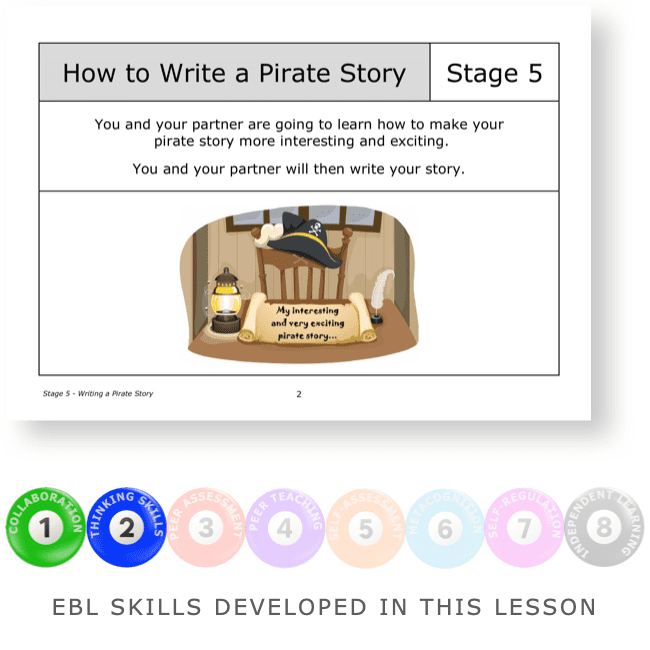 £2.00Add to basket
£2.00Add to basketPupils work with a partner to learn how to make their pirate story more interesting and exciting.
They will then write their pirate story.
This lesson develops collaborative learning and thinking skills which has been proven by research to be crucial for successful learning. As well as developing collaborative skills pupils also benefit from undertaking a fully-scaffolded activity.
VIEW -


Writing a Pirate Story – Adding Details
£2.00 Add to basket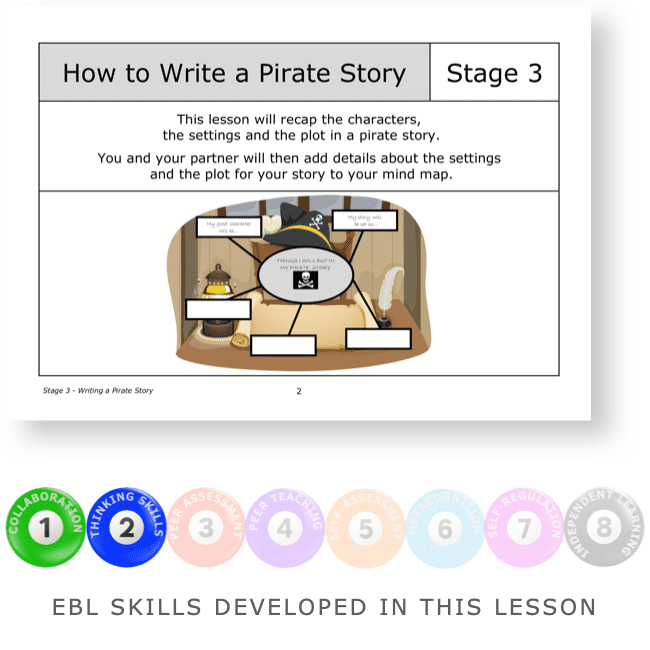 £2.00Add to basket
£2.00Add to basketPupils work with a partner learning and recapping the characters, settings and plot of a pirate story.
They will add details about the setting and the plot for their story to their mind map.
This lesson develops collaborative learning and thinking skills which has been proven by research to be crucial for successful learning. As well as developing collaborative skills pupils also benefit from undertaking a fully-scaffolded activity.
VIEW -
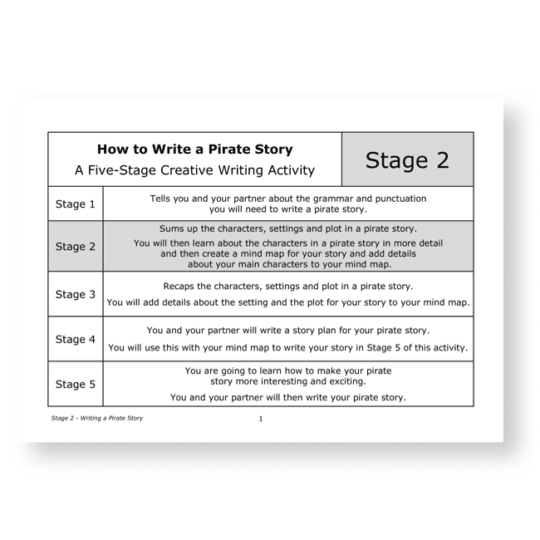

Writing a Pirate Story – Mind Map
£2.00 Add to basket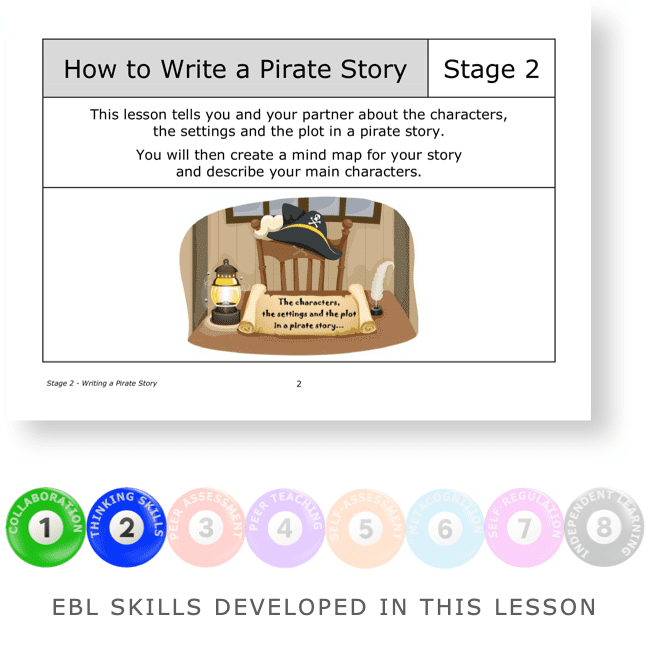 £2.00Add to basket
£2.00Add to basketPupils work with a partner learning about the characters, settings and plot of a pirate story.
They then create a mind map for their story and add details about their main characters to this mind map.
This lesson develops collaborative learning and thinking skills which has been proven by research to be crucial for successful learning. As well as developing collaborative skills pupils also benefit from undertaking a fully-scaffolded activity.
VIEW -

 SAVE 25%
SAVE 25%How to Write a Pirate Story + PDF
£6.00 Add to basket £6.00Add to basket
£6.00Add to basketSave 25% when you buy all 5 lessons in this series:
- Stage 1. Writing a Pirate Story – Grammar
- Stage 2. Writing a Pirate Story – Mind Map
- Stage 3. Writing a Pirate Story – Adding Details
- Stage 4. Writing a Pirate Story – Story Plan
- Stage 5. Writing a Pirate Story – Now Write
VIEW

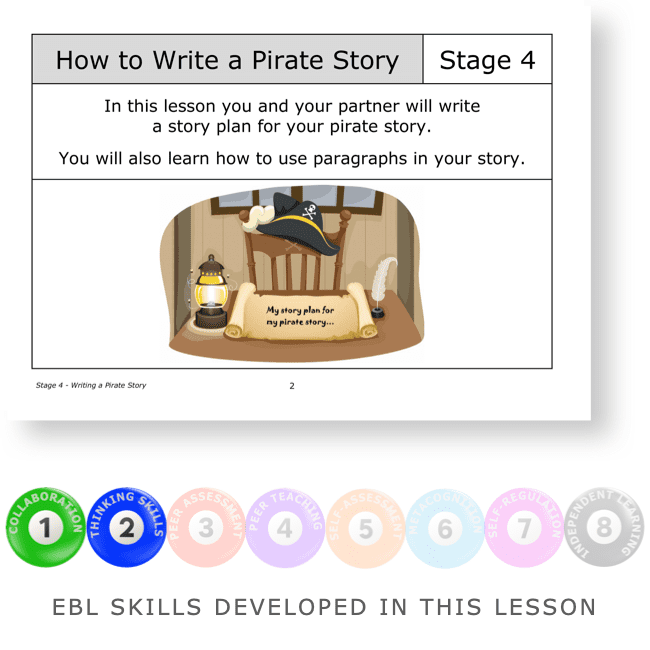
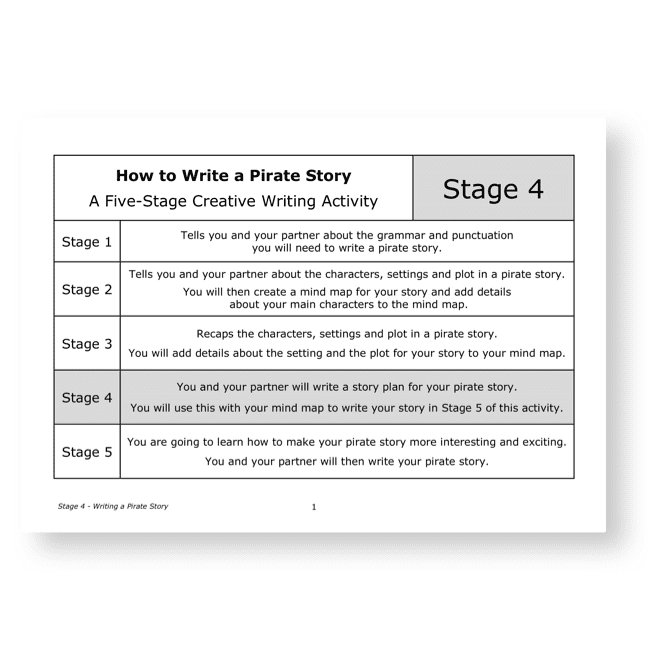
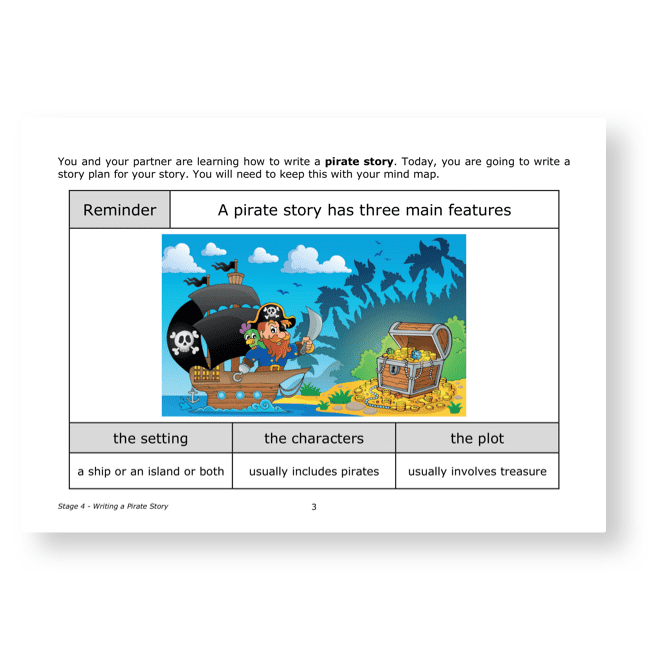
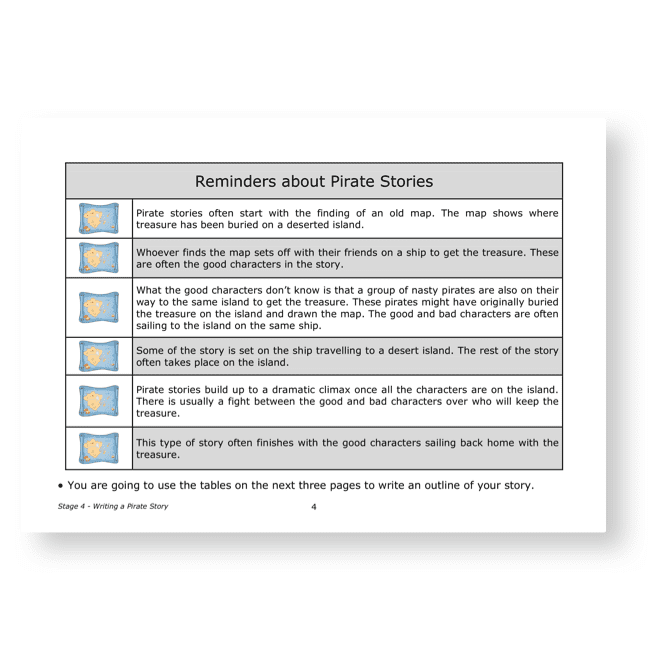
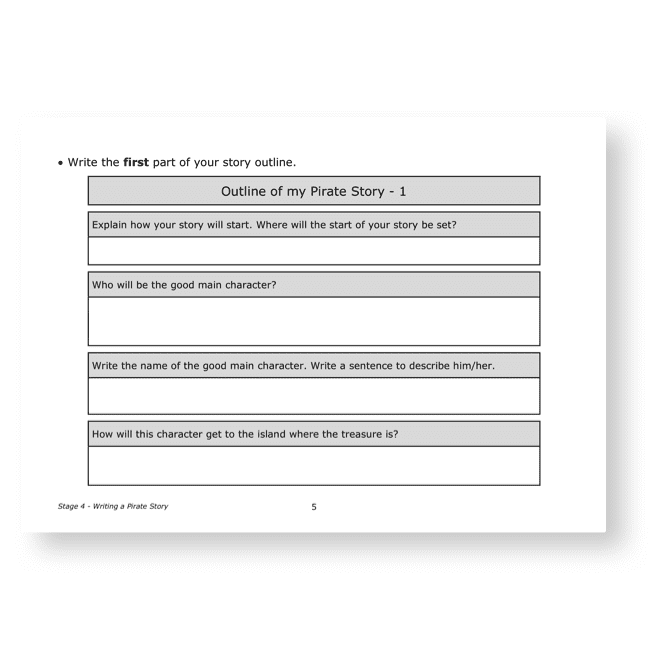
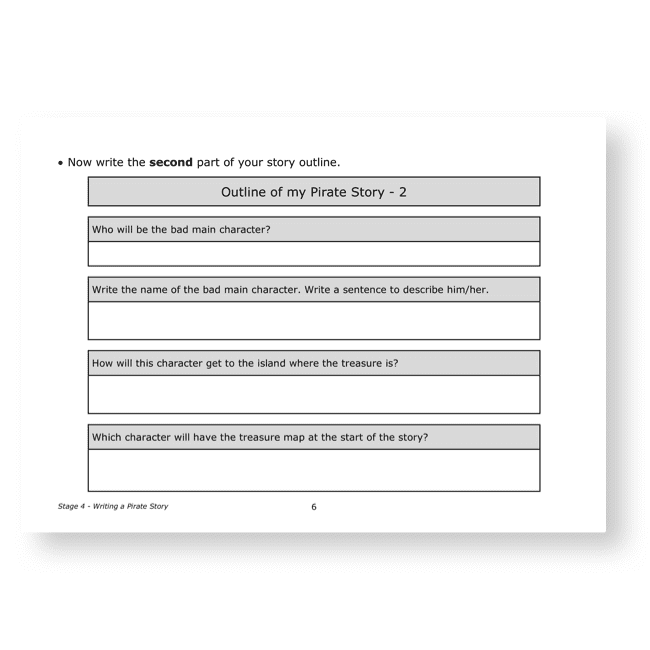
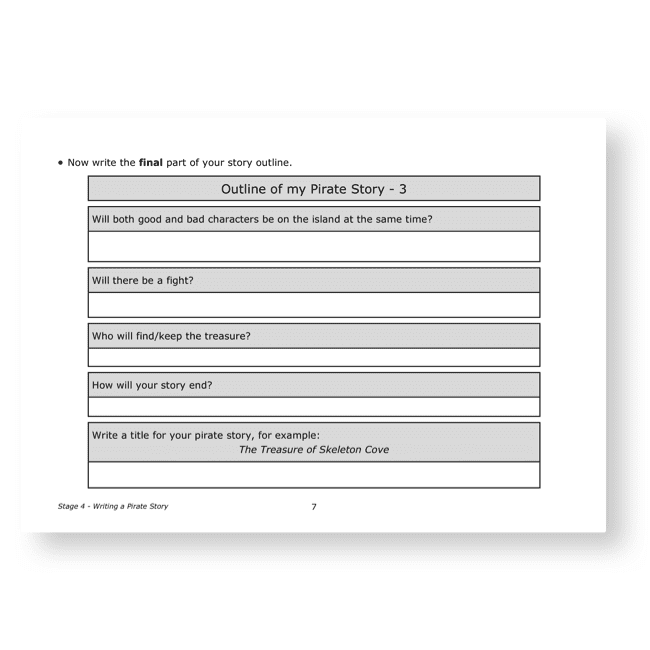
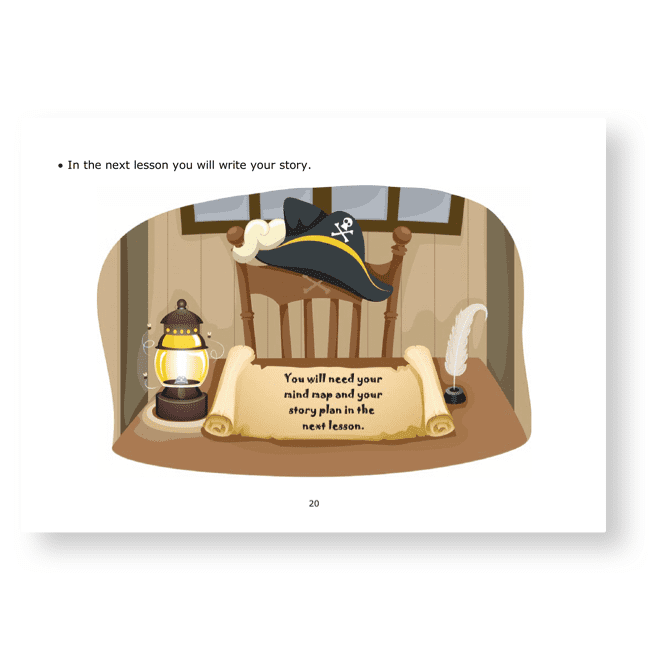
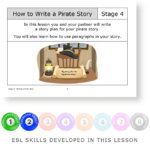
Philipem (verified owner) –
We asked a.i. to review this lesson. This is what it said:
Writing a Pirate Story – Story Plan Rating: ⭐⭐⭐⭐⭐
In this fourth lesson of the five-part “Writing a Pirate Story” series, students work with a partner to write a story plan for their pirate story. They will use this plan, along with the mind map from previous lessons, to write their final story in the last stage. This collaborative approach helps develop crucial thinking and learning skills that research shows are key for successful learning.
Not only does the pirate theme engage students in a fun and motivating way, but the lesson is fully scaffolded to support literacy skill development. Students learn how to structure a narrative into beginning, build-up, climax, resolution and ending. They also practice using capital letters, punctuation, tense and point of view correctly. The focus on paragraphing teaches students when to start a new paragraph based on changes in setting, character, time, dialogue and action.
By working together in pairs, students benefit from collaborative learning as they share ideas, give feedback, and learn to communicate effectively. The mind maps and story plans provide thinking scaffolds to break down the writing process into manageable steps.
I would give this lesson 5 out of 5 stars. The engaging pirate theme, focus on essential writing skills, and collaborative, scaffolded approach make it an excellent resource for teaching English in an evidence-based, student-centred way.